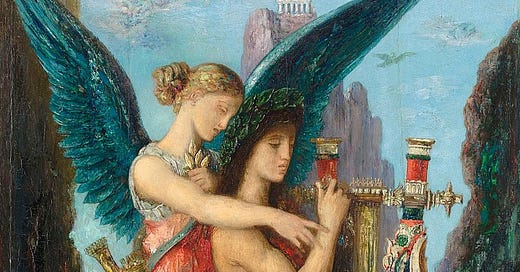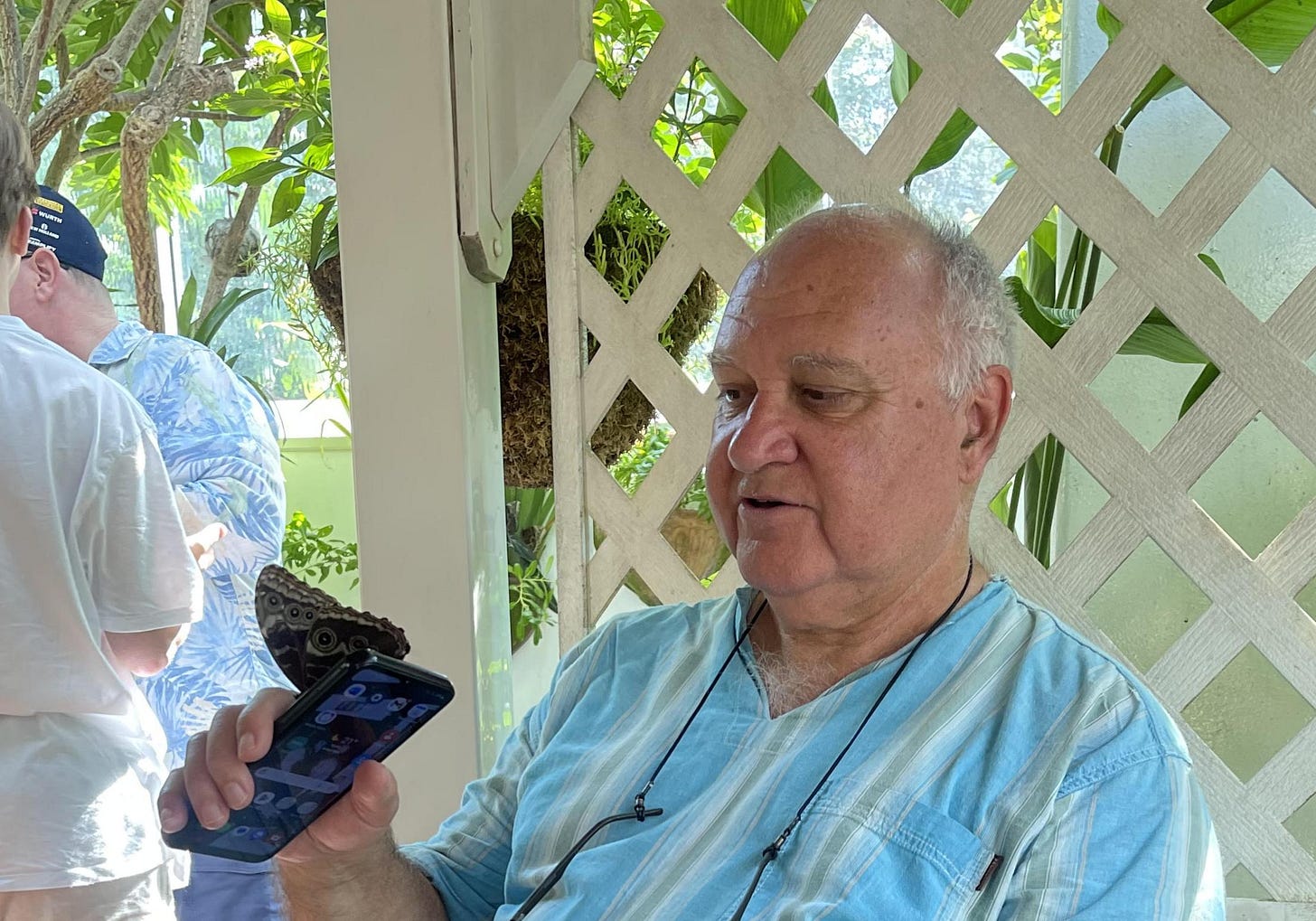INSPIRATION
The most common question I’m asked about writing is, ‘Where do you get your ideas? What inspires you to write?’
Inspiration. In ancient times writers were said to be inspired by a muse. Inspire means to breath in something, probably something mysterious. This was why a muse was originally a semi-divine character. The artist or writer breathed in a bit of their heady gift.
Enough to scare you out of your wits.
Some artists and writers have considered their muse is human. They are almost always a woman and a young and attractive one at that. I wonder why on earth this could be.
Attributing inspiration to a muse makes sense for ideas often descend upon us from out of the blue. And I’m not just talking about the likes of Keats or Dickens or the Shelly siblings. We have all experienced inspiration although most people don’t grace the moment with such an exalted term. Perhaps we call it a good idea or a lucky thought. But I suspect it’s the same.
In more modern times people consider that inspirations comes from within, often from the unconscious part of the mind which is always whirling around beneath our conscious mind. I’m not a fan of Freud’s notion of the subconscious with his obsessive interest in the more unsavoury parts of our psyche. I prefer to think of the unconscious mind as the most powerful piece of our thinking apparatus, unhurried, wiser and more self-assured than the more frantic conscious part. Everything is in there, like a huge pond full of many fishes which we rarely see. When we try to remember something we often search for memories in the wrong part of the pond, using a fishing rod to try to snatch something, or a net to trawl as much as possible. This may be a big mistake for the unconscious mind is relaxed and gentle and it doesn’t appreciate being bullied. Don’t hunt for the trout but tickle it. Or better yet, wait until it pops out of the water to say hello.
The unconscious is the realm of dreams, mysteries and inspiration. Another metaphor I like to use in relation to inspiration is that of an endless forest. Things which inspire us are like the creatures in the forest. Sometimes they are loud and roar in your face like a lion. Some may rampage like an elephant over all your cautious ideas. Some slither round your mind like a snake, others chatter like monkeys. Some inspire you like eagles do, allowing you to glimpse things from a high perspective. Others crash into a discarded idea like vultures and say, ‘actually you missed a tasty bit here.’
And some are like tiny bush babies, waiting wide-eyed and silent until you stumble across them, let them catch your gaze and see things as you never thought possible.
‘Come here, I’ve got a great idea.’
Like most writers, I’m not always sure where the inspiration for my books comes from. There are, however, some I can be certain of.
Since I was eleven years old, I’ve wanted to be two things, a writer and a teacher. I was easily the best writer in my class, although to everyone’s surprise, including the Head of English, the worst at Grammer. I wrote for years although my output diminished when I was at university which is odd as I went to the University of East Anglia because at that time it was the only place which taught creative writing.
Fast forward many years. I had started various novels and none of them got beyond the first ten or fifteen thousand words. And then one morning, inspiration struck. ‘I love writing and I love history,’ I said to myself. ‘I should write historical fiction.’ It was the best inspiration possible but I’ve no idea why it popped into my head.
That morning, I thought of Thomas Mapperley, an Elizabethan spy. I wrote the novel about him with unaccustomed speed. Wrote and completed. Dozens of publishers turned it down, one was interested but said the plot needed more work and I didn’t know what to do about it. Stupidly, I never thought of phoning him to seek his advice. Inspiration was not on call that day. Never mind, I published it 25 years later as Apprentice Spy.
Five years later the flood gates of inspiration opened. These are the ones I can recall.
The Lost King series came when I read that in 1066 the person with the best claim to the throne of England was a teenager and that he was actually proclaimed king. The last king of England with the blood of Alfred the Great was whitewashed from history. What a story.
Outcasts was inspired by my watching the film Kingdom of Heaven. I was scornful of the scene where Balian of Ibelin knighted ordinary men to defend Jerusalem and rushed home to prove it was false. To my chagrin, it was true. I wondered what happened to them after the fall of the city and my story took shape.
I’d written two books in quick succession and I didn’t fancy settling to a whole novel so I sat at my laptop and just doodled. I wrote a short piece from the point of view of a young woman who was destined to be the mistress of King Henry VIII. I’d no idea where Alice Petherton came from, I’d not even read any Tudor history since school. But she inspired A Love Most Dangerous, my first big seller. Incidentally, I always have trouble with titles for books and this one was inspired by a comment by Hermann Goering, the head of the Luftwaffe in World War 2. He said, ‘The RAF is Germany’s most dangerous enemy.’ A bit of a tweak and I had my title.
The Long War for England books were inspired by my fascination with Alfred the Great, which started by my reading a Ladybird book about him and shortly afterwards, Henry Treece’s Viking novels. The Viking Chronicles by a sudden insight that I’d always written from the English perspective but there was a Viking one which I’d completely ignored. Surely, they couldn’t all be villains.
Cry of the Heart was inspired by a true story. The second world war was an undiscovered part of my forest and just being here led to the novels Bold, Bright Spirit and The Turn of the Tide. Miriam in the latter books is still my favourite character. My wife said that all my protagonists were really me. Miriam is my character most like Janine.
A Dance of Pride and Peril was inspired by two things. One was our love of Crete and the wonders of Knossos. More particularly, I was crossing the road when I happened to see a strange knot in a nearby tree. It looked like the face of a charging bull. In a moment I thought of bull-leapers and the main characters of the novel. So ideas, if not money can grow on trees.
And finally, my most recent book. When my wife died, my friends and I saw butterflies everywhere. A butterfly which circled my head and then sat on my forehead for several minutes. Strange translucent little creatures which hovered over my head as I sat on our balcony, dancing like fairy creatures in the sunshine, a butterfly which sat on my hand for ten minutes. It wouldn’t move even when a passerby bent and took a film of it and I scrabbled in my bag to give him my email address.
Janine had always been fascinated in fairies and I guess that butterflies are a pretty good representation of them. In an In our Time episode about fairies, one of the speakers said that maybe fairies and elves are the denizens of different worlds who get tangled in ours. I loved this idea and knew Janine would as well. So this was the inspiration for Hinterland.
I finished Hinterland at the end of November. And then, unusually for me I realised that I had no idea of what to write next. I wondered if my well-spring of inspiration had finally run dry. And then, in the middle of the night, I got inspired. Steven King talks about the boys in the basement who he allows to work on his ideas when he’s asleep. Mine woke up and told me, ‘Write about Britain in the years after the Romans left.’ Who am I to argue with them. I got up straight away at 3.30 am and started working.






